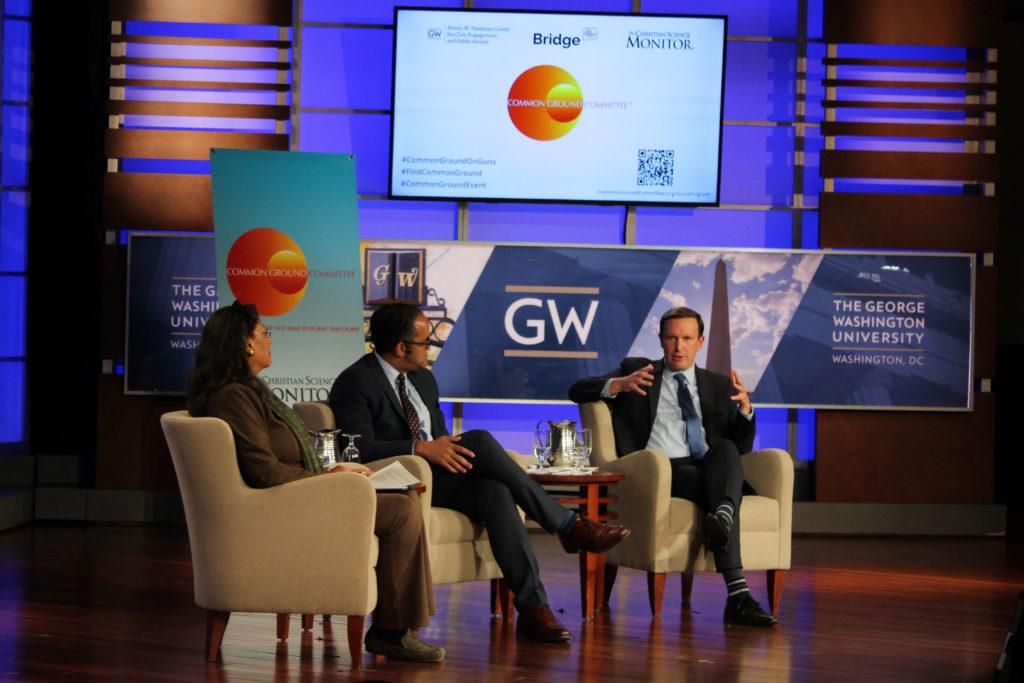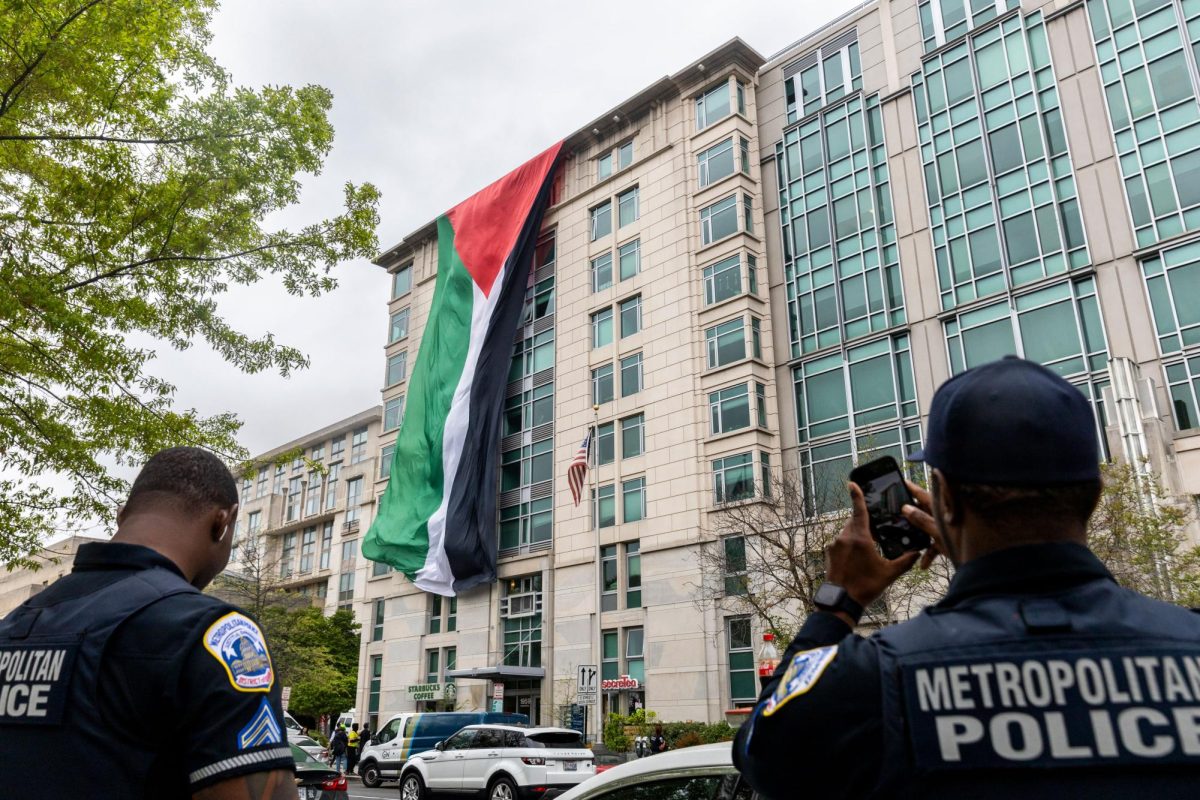Two politicians discussed their views on gun control and safety at the School of Media and Public Affairs Tuesday.
Sen. Chris Murphy, D-CT, and former Rep. Will Hurd, R-TX, spoke about the deep polarizations of the American public and Congress and how language and external political forces negatively impact civic engagement on issues like gun safety. The event was moderated by former CBS News correspondent Jacqueline Adams and co-sponsored by nonprofit organization the Common Ground Committee, the Nashman Center for Civic Engagement and Public Service, Bridge GW and The Christian Science Monitor.
Interim University President Mark Wrighton spoke to the audience briefly before the speakers came on stage and touched on his own experience with gun violence.
“I mentored, together with my wife, a young woman for about seven years,” Wrighton said. “And she was murdered by gunfire in St. Louis.”
Hurd, who represented Uvalde, Texas in Congress from 2015 to 2021, said implementing changes in gun laws like age restrictions on weapons purchases begins with finding issues that people on both sides of the political aisle see as something to be solved. He said emotionally charged language, like asking people if their kids should fear school because of potential shootings, does nothing to further talks on the issue, and is only a “trigger” for unproductive arguments.
“That’s why we have to change some of the language in how we talk about this in order to find the things that we ultimately agree upon,” Hurd said.
The panel also discussed the bipartisan gun legislation bill, the Bipartisan Safer Communities Act, which provides funding for community violence interrupters, enhances the gun purchase review process for people under 21, signed into law in late June by President Joe Biden. Murphy, an anti-gun violence advocate who also helped lead negotiations on the bill, said the Uvalde mass shooting, along with years of other mass shootings, forced members of Congress to face their constituents’ calls for reform and prompted bipartisan support.
“Members of the Senate went home and really saw a sense of panic and anxiety from families and kids and parents that they hadn’t seen before,” Murphy said.
Murphy and Hurd then answered questions from the audience on how to shape policy around modern American gun culture. When asked about combating illegal interstate gun trade, Murphy said weak state gun laws in some states attributes to higher shooting and homicide rates in nearby states.
“State laws make a difference,” Murphy said. “The gun homicide rate in Florida is 400 percent higher than the gun homicide rate in Connecticut.”
When questioned by another audience member on how the U.S. will face the future of gun control as weapons like 3D-printed guns rise in prominence, Hurd said the U.S.’ moves on policy surrounding these weapons are related to Americans’ faith in the institutions which run the country and whether possible regulations will be enforced by them.
“Access to weapon is a part of this problem,” Hurd said. “And it’s not the only part and that’s why some of these other issues have to be tackled as well.”











